Pepper is a common vegetable that features in our meals. When adding pepper to dishes, most people don’t think twice before throwing away the seeds. However, you might wonder if there’s anything wrong with the red pepper seeds.
Are they what makes up hot peppers? Are the seeds in your bell pepper varieties poisonous? Or is it just about personal preference? In this article, we’ll explore the answer: “Can You Eat Red Pepper Seeds and if the red pepper seeds are related to the heat level of your pepper?”
Contents
Are Pepper Seeds OK To Eat: Can You Eat Red Pepper Seeds?
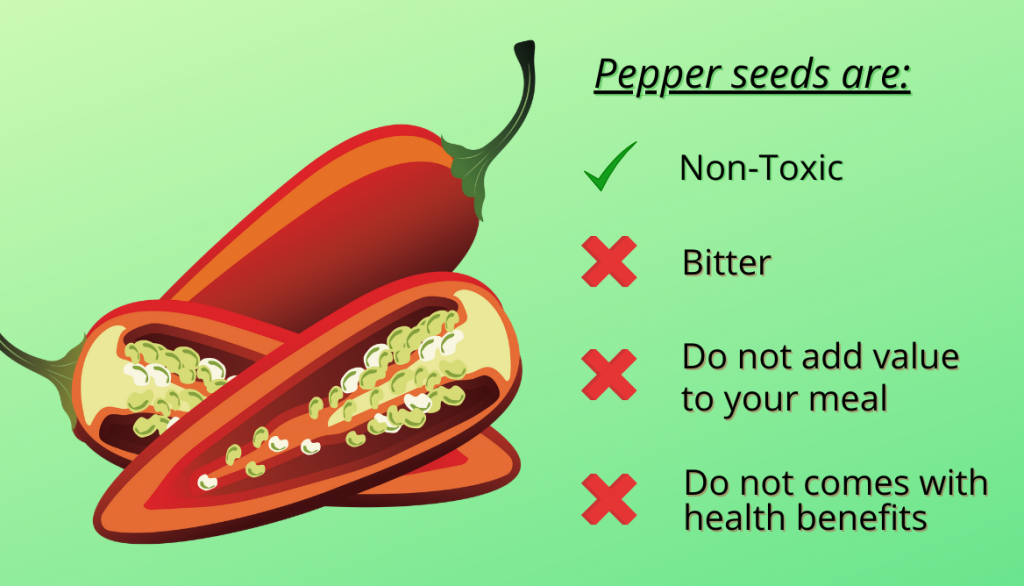
We love pepper, whether it’s sweet peppers or green peppers. If you’re wondering if pepper seeds are OK to eat, it is. Pepper seeds are not toxic; people feel the need to remove them before using the pepper. Although they’re OK to eat, they are bitter when added to meals.
Beyond the slight bitterness, the red pepper seeds do not add value to your meal. The main point to consider is the mouthfeel. Not everyone is okay with having small, hard bits of pepper seeds in their hot sauce. It’s worse when it’s a puree that needs to be a smooth dish.
Therefore, a point to consider is whether to remove seeds from the pepper before you cook or strain them out after the dish is ready. If you’re wondering if it is the main ingredient in spicy peppers, it’s not. The seeds do not contain capsaicin, which controls the pepper’s heat level.
Capsaicin is found in the whitish membrane of your pepper; most people refer to the white membrane as the placenta, and it comes with many health benefits. For example, it helps lower blood pressure and prevents diabetes and cardiovascular disease.
However, there is no capsaicin in pepper seeds themselves. Therefore, if you feel the heat in the seeds of your pepper slices, it is most likely from the placenta, not your red pepper seeds.
Can Pepper Seeds Cause Appendicitis?
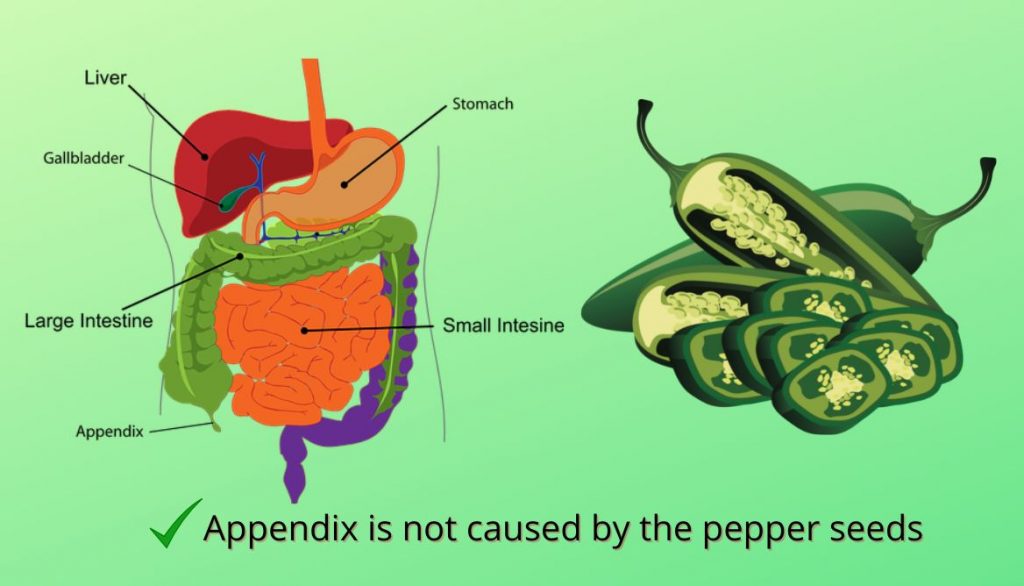
There’s a myth making the rounds that chili seeds cause appendicitis. People believe that when you make spicy food, chili seeds accumulate in your appendix and lead to inflammation of the organ.
Appendicitis comes from a blockage of your appendix and can result from worm infections, hardened stools, and the thickening of the appendix wall tissue. When you block the appendix, bacteria grow and multiply, leading to the swelling and inflammation of the appendix. If left untreated, the appendix tends to rupture and lead to a chronic disease known as peritonitis.
While an obstruction that causes appendicitis can occur, it is not because of spicy food. There is no data to support this old myth. Although eating too much spicy food can lead to irritation of the digestive tract and cause digestive orders like stomach pain, appendicitis isn’t one of them.
Therefore, appendicitis is not caused by the buildup of chili seeds in your spicy food. Even if a part of the spicy food accumulates and causes a blockage, it isn’t because of the hot pepper seeds. You should note that spicy food sometimes causes a painful illness and comes with symptoms similar to appendicitis. Such illnesses are also not caused by the hot pepper seeds either.
Can You Eat Bell Pepper Seeds?
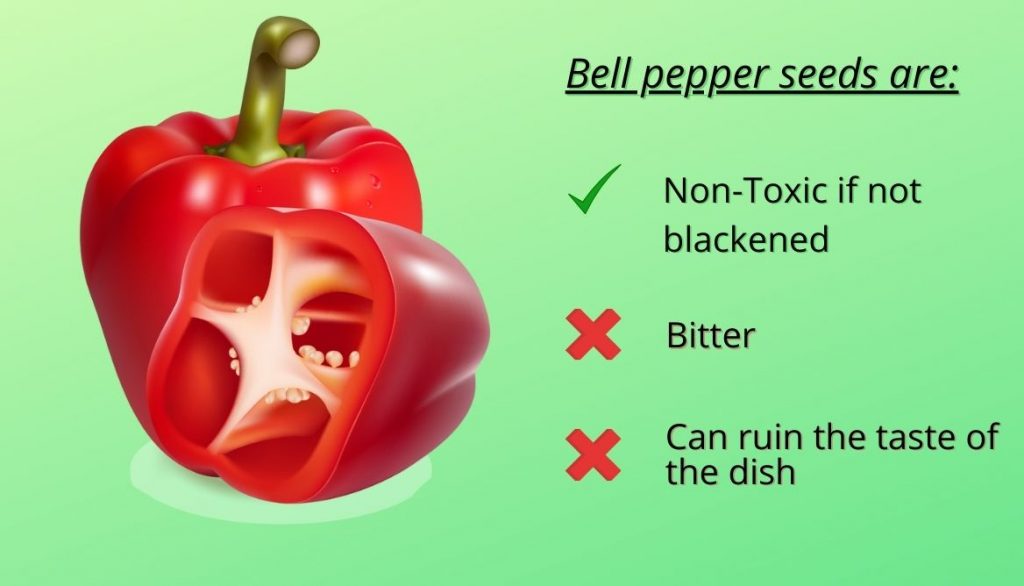
Bell pepper is a popular vegetable you’ll easily find in supermarkets. Whether you want to eat raw bell peppers or have them cooked, they’re wonderful and taste great. However, while many people use bell peppers in Asian cuisines and various dishes, these chili pepper seeds have a bad rep.
As long as you don’t notice the blackening of pepper seeds and they’re not covered, they’re entirely edible. Although you might not enjoy the taste, they don’t affect the spiciness of the fresh bell peppers. So nothing bad happens when you eat the seed of your green bell pepper, and although you might not like the taste it brings to your delicious food, it won’t make you sick.
When using bell peppers, it’s more common to use the seeds in the green peppers than those in the orange, red, or yellow bell peppers. This is because green peppers are harvested early and naturally have a bitter taste. Therefore, you can expect these flavors when using the green bell pepper.
On the other hand, those looking for sweet peppers don’t go for green peppers. Instead, the orange peppers or yellow, red, or purple varieties come with a sweet profile. Mixing the bitter seed with your red bell peppers would cause the flavors in your dish to clash. Beyond this, you only need to avoid it in your spicy food if you find black seeds in your bell peppers.
Is It Bad to Eat Jalapeno Seeds?
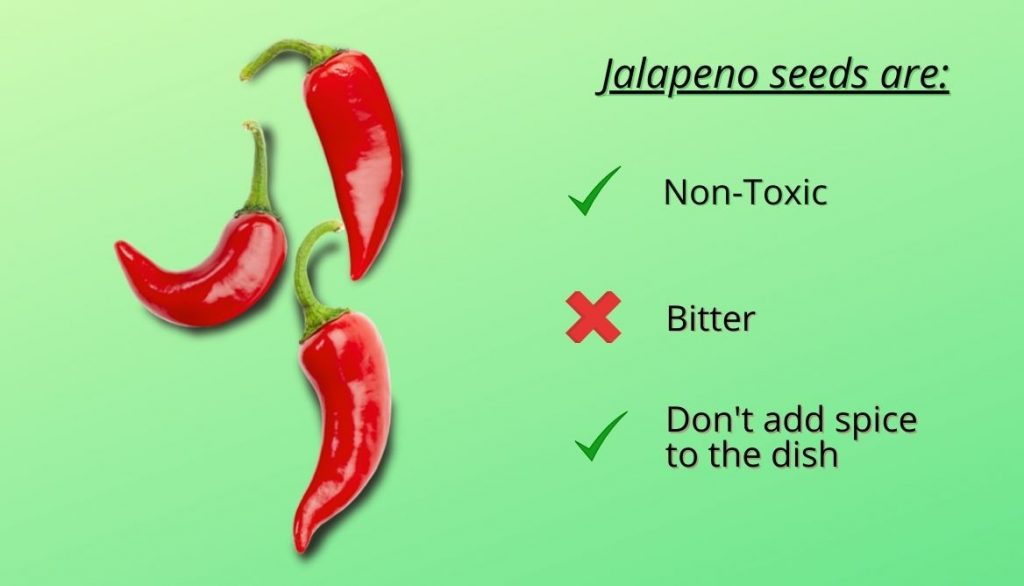
Like red bell peppers, jalapenos are spicy, and so are its chili pepper seeds. Although jalapeno seeds might seem spicy, they’re not bad for you and do not put you at risk of heart disease. There’s a common misconception that jalapeno seeds make them spicier, but that’s not true.
The spiciness you feel comes from the capsaicin found in the white, pale membrane surrounding the seed. This compound has amazing health benefits as it is sometimes added to creams to relieve pain. Beyond this, its effect on health conditions like blood pressure adds to the advantages of chili peppers. However, they only surround the seed; the seeds themselves are harmless.
The chemical is quite close to the seeds and sometimes comes in contact with the seeds. When this happens, it transfers some of its source to the seeds. Although a small amount of capsaicin is found in pepper seeds and could cause mild discomfort, the temperature is still relatively low. It isn’t as hot as the white membrane of red bell peppers.
Conclusion
Chili seeds are not a vitamin A or C source and have no nutritional benefits. Therefore, removing them is entirely a matter of personal preference. However, there are no dangers to your health when you consume them because they don’t put you at risk of cancer. The only adverse effect of the chili pepper seeds is that they might add a bit of bitterness to your sweet peppers.
They’re only inedible if you find black seeds in your red bell peppers or another pepper family. However, the white seeds are healthy and OK for consumption. Including or removing these seeds depend entirely on you.
- How to Get Potatoes to Sprout Eyes: Detailed Growing Guide with 3 Options - July 31, 2023
- Weight of a Medium Potato: Revealed in Detailed Guide - July 29, 2023
- Maris Piper Potatoes: 9 Substitutes You Should Know About - July 27, 2023
Hello! I’m Jessica Zander, a garden coach and consultant based in the Boston area (zone 6b), offering virtual consultations across the country and Canada.
I’ve been passionate about gardening since the early 1990s, and in 2022, I launched You Can Do It Gardening to empower individuals to feel more confident in their gardening endeavors.
Following a 30-year career in nonprofit finance and operations, I transitioned out of that field in mid-June of 2023 due to the growing demand for coaching services. Interestingly, my years of presenting financial statements to boards and finance committees proved to be valuable experience for teaching people about gardening! I enjoy sharing skills, providing guidance and suggestions, and collaborating efficiently with clients to make significant improvements to their outdoor spaces, both small and large. I also regularly teach at the Arlington Continuing Education and Cambridge Adult Education.
My approach is direct and practical, akin to Mary Poppins, but tailored to your garden. Clients find satisfaction in saving money and taking pride in their own gardening achievements.

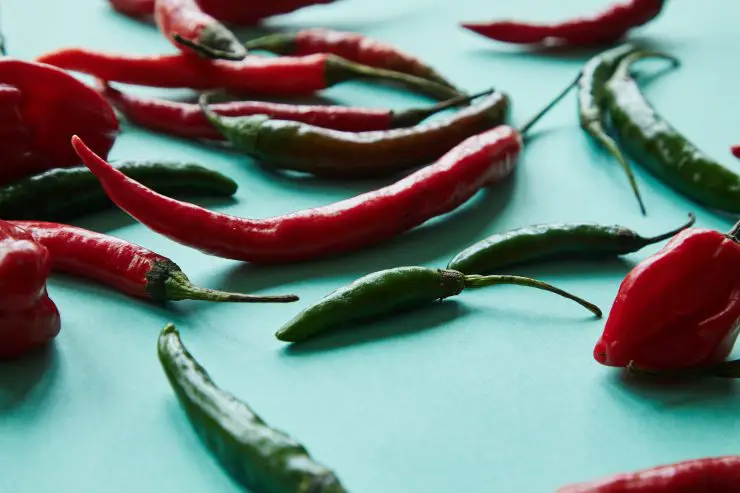
Add comment